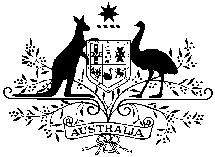 The Government is committed to ensuring that its laws against foreign bribery are effective.
The Government is committed to ensuring that its laws against foreign bribery are effective.
We take a zero tolerance approach to bribery and corruption. We also take our obligations under the OECD Anti-Bribery Convention seriously.
It is an offence under the Commonwealth Criminal Code to bribe a foreign public official.
In Parliament new measures will be introduced to close a possible loophole that could allow a defendant to avoid prosecution by arguing they did not intend to bribe a foreign official, simply because they did not know the identity of that official, even though a bribe was in fact paid.
Foreign bribery is often committed through intermediaries, which means that a briber will often never meet or not know the identity of the bribed official.
The changes presented to Parliament today clarify that the prosecution does not need to prove that the defendant intended to bribe a particular foreign public official in order to make out the offence of foreign bribery.
Foreign bribery offences carry maximum penalties of 10 years imprisonment and fines of up to $1.7 million for individuals and $17 million for corporations.
Our agencies, particularly the AFP, have taken significant steps recently to improve the enforcement of the foreign bribery offence.
Taking action against the bribing of foreign public officials is an ongoing task.
It involves ensuring we have appropriate laws in place, and that enforcement agencies are equipped to bring offenders to justice.




